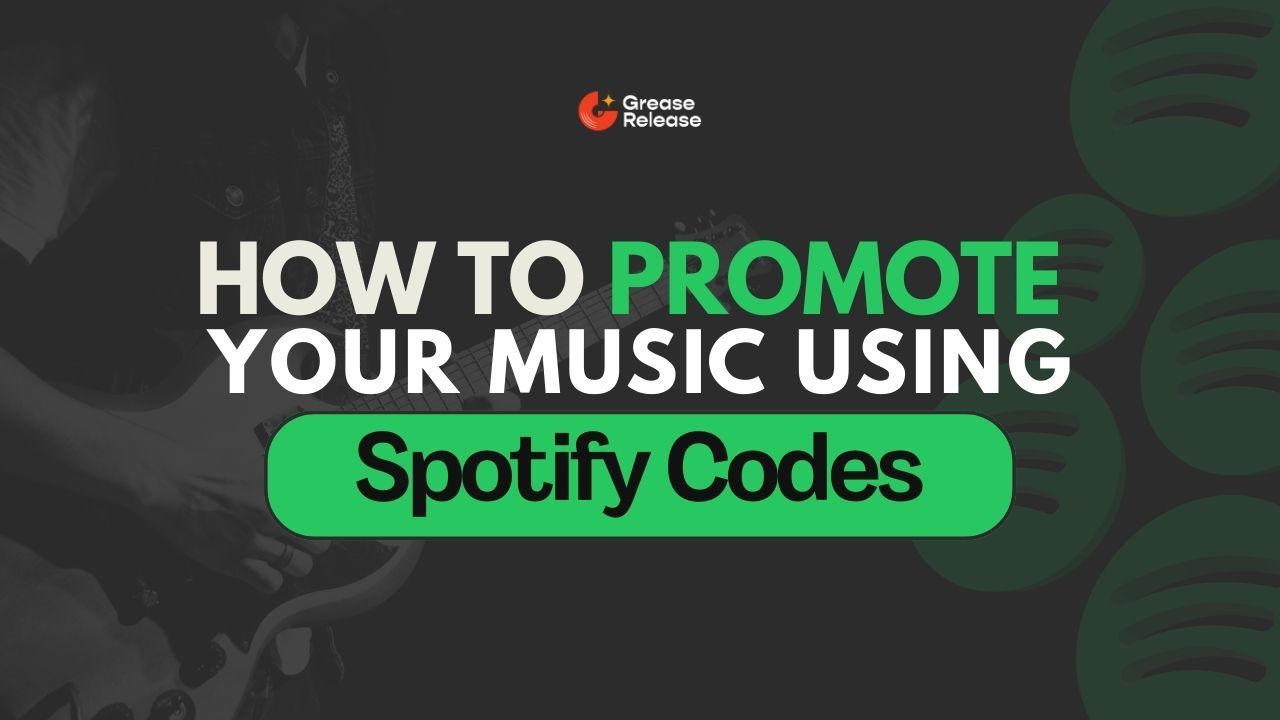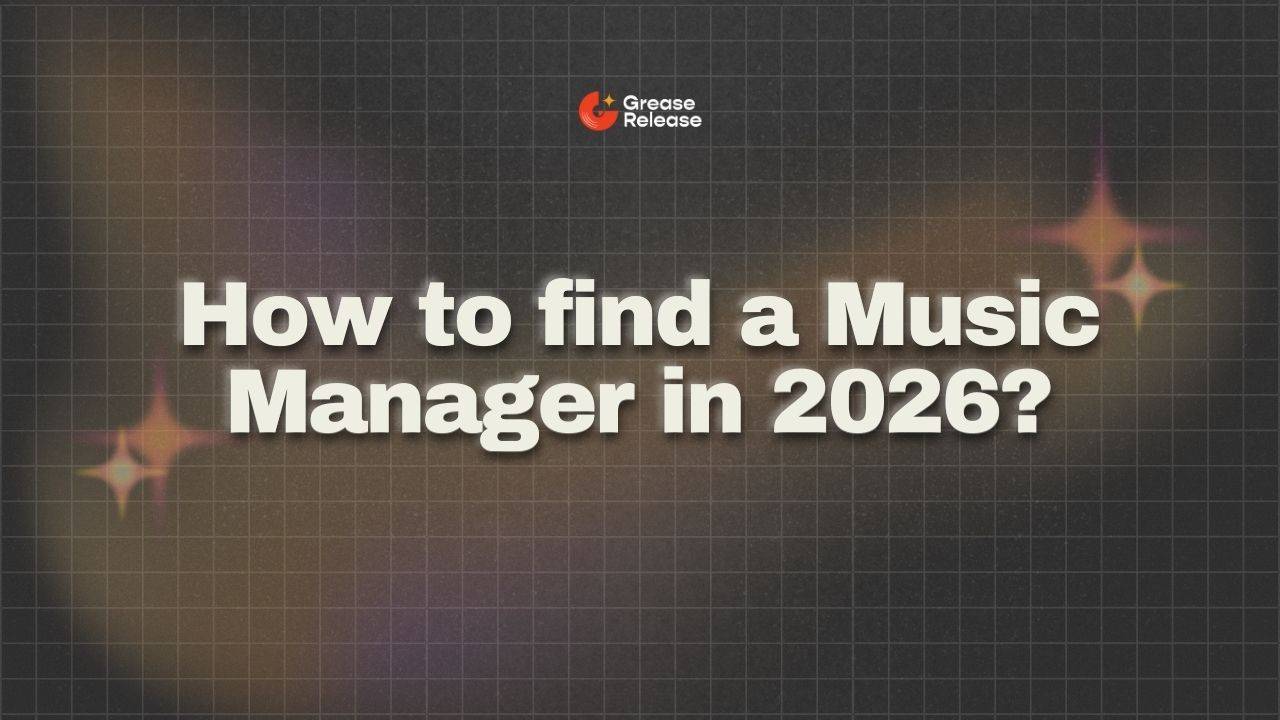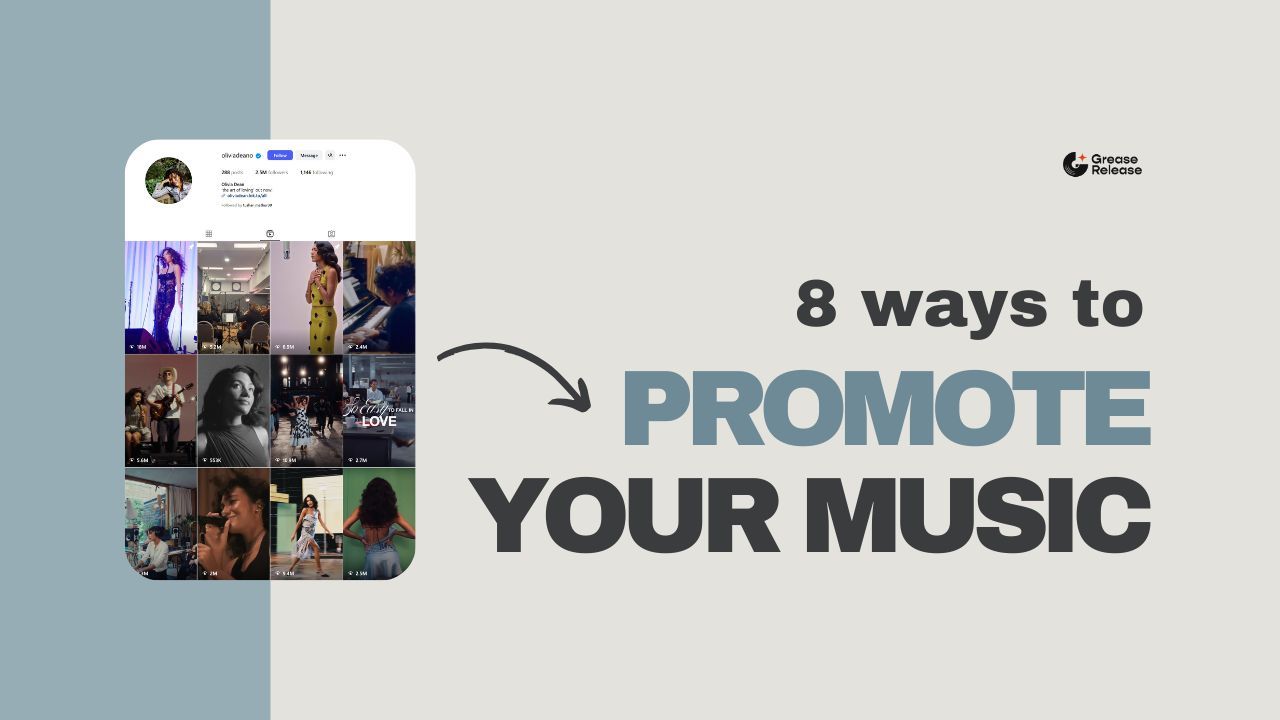
Beat Creative Blocks as a Musician
Feb 07, 2024How To Get Over A Musician’s Block?
In any musician's life, there comes a phase where writing or making music seems impossible because you feel like you have run out of talent and your mind seems to snooze on many attempts to make something. Such a phase may seem unending but given the appropriate techniques and resources, any musician can beat a creative block.
In this article, we’ve tried to answer a few questions:
- What is a musician’s block?
- Why is it important to address it?
- What causes a creativity block?
- How to get over a musician’s block?
- How to prevent musician’s block?
- Our Final Thoughts
What is a musician’s block?
Similar to writer’s block where the writer feels it physically and mentally impossible to write anything, musician’s block is a phase where a musician or music artist finds it extremely difficult to write a song, make a beat, compose a tune, or anything else that falls in the realm of music making. It can occur to anyone and everyone in the music-making industry and on different levels.

Pssst….come here: Remember that such a ‘slump’ is completely normal. You still have it in you, you haven’t run out of your musical ideas and visions. Make sure you don’t let the thought or experience of a block define your musical capabilities. Breathe.
Why is it important to address it?
In a musician’s block where ‘creativity’ seems to have run out and you feel the impending doom, it becomes important to first acknowledge it, rather than deny it and delay the process of getting out of one which is only, through it. It is important to address it because if you don’t, a creativity block could affect your mental health and could help develop other mental health issues such as Imposter syndrome.
Constant frustration and dissatisfaction with yourself may become the daily routine for you if you are going through a block because no matter how much you try, you end up with nothing on the paper. Given that musicians are usually their worst critics, this could in turn trigger intense emotions of anxiety and helplessness, and you may experience low self-esteem.
In such a time, the first step is to recognize it and not fight it constantly, which makes addressing a block very important in the whole process of getting over it.
What causes a creativity block?
While every musician goes through a unique set of experiences in their professional as well as private life, there are some common factors that could lead to a creative block in a musician’s life. One of these or even a combination of these could have a long-lasting impact if not handled properly.
Burnout
One of the most common factors reported is burnout. Burnout is the result of overworking or stressing yourself for weeks to months together, without any time for rest or breaks. The days where you overwork could also be the days where you have intense creative work and give your brain a lot to churn from. Thus burnout becomes a very bodily response to the intense work you’d be giving to your mind.

Burnout is a signal from the body that usually means, “Hey I am tired, I want to rest and I don’t have the motivation to do more.” At this point, what you should ideally do is listen to your body and rest up very well. Give yourself a much-needed vacation or break. But when musicians continue to try and work through burnout is where their mind also gives a signal along with their body and that signal is a block - “I cannot think anymore.”
Pssst…come here: You can recognize when you are experiencing burnout - your body feels lethargic and fatigued, and doing basic tasks and chores seems intimidating because your body feels tired all the time. Some report experiencing physiological pain as well, backache, body pain, shooting pain in the chest, and so on. It is also advisable to visit a doctor when the pain doesn’t reduce after a day or two of proper sleep.
I Want To Be Perfect
Perfectionism is another factor that could lead to a creative block for a musician. Perfectionism isn’t a bad goal for any human in any field, but having unrealistic standards and expectations from yourself to remain perfect in the profession could backfire easily.
Working from scratch because one element in your track’s mix didn’t sound perfect enough could be an inappropriate way to go about things. If you are going to be meticulous about every tiny little detail, then you’d never complete anything nor will you ever actually satisfy yourself. And when you can’t be content with yourself, you usually end up forcing yourself to do better, which may trigger a creativity block. These high standards don’t restrict your musical vision but also yourself - you end up being so stuck with a single, trying to perfect it that you may not explore other ideas and even yourself, as a musician.
Pssst…come here: Once you set those high and almost unreachable standards for yourself, the fear of not meeting them, more often than not, consumes the free flow of thought for creativity to work. We are not asking you to make really good music and not work hard enough for it, but set realistic goals and standards.
Predictability
A sense of monotony in your daily life can become a major cause of a creativity block for a musician. The repetitious nature of the day/work causes a sense of predictability that leads to another thought when you wake up every day - nothing is exciting. This doesn’t help much with being creative, does it?
The lack of variety in your routine could lead to a block, because if you have planned something new, then you’d actively look forward to it. But with the same set of tasks made for every day, you may not feel the same. This also gives space to a lack of inspiration as well.
Private issues/mental health illness
Stressors in your personal life as well as preexisting mental health conditions could catalyse the process of slipping into a block. Personal problems with relationships, whether they include family members, peers, or spouses, can be extremely tiring and disturbing. Tension or anxiety related to relationships can consume the mind, making it hard to concentrate on artistic endeavors. Physiological or emotional health issues, either transient or chronic, might impair a musician’s well-being and capacity to focus on their profession. Pain, exhaustion, or mental health issues may impede the process of innovation.

Pssst…come here: It may seem impossible to bring up something new when you have a lot on your plate already. So, clear your plate. Finding solutions for your issues, or seeking help whenever needed is one way you could avoid a creative block that could surface as a result of your interpersonal problems.
How to get over a musician’s block?
It can be very disappointing when you have tried to sit down and make music but you just can’t. A creativity block for a musician could be about any part of the music-making process which makes it all the more unique and distinct. However, we have noted down generally tried and tested methods that could help you break your musician’s block.
Breaks
Use this block to get the much-needed vacation you deserve! Have a long weekend coming up? Plan a short trip to the beach or take on adventure sports and try trekking. Indulge in recreational activities. By doing so, your brain will get a boost of happy hormones (neurotransmitters like serotonin and dopamine) and your mind will automatically relax. And a much-relaxed mind, void of thoughts of failure, disappointment, and so on, works much better. You may not want to return from the vacation at all (and that’s fair), but you may feel well-rested and relaxed, ready to try something new. Getting a fresh perspective on things makes a big difference.
Explore different genres
Feeling stuck, trying to come up with a guitar melody for your indie song? Try indulging in pop elements. Listen to some synth too! Exposure to other styles might inspire new ideas and views that you can use in your work. If Taylor Swift could become a pop star from originally being a country singer, then you could at least try listening to music that is outside of your usual genre. Maybe the rhythmic patterns and the melodic structures you are stuck trying to come up with, lie in a completely different genre.
Jamming
There is a free flow of writing and playing music. It is probably the easiest way to relax. Jamming is mainly based on improvisation, in which players compose and perform music on their own without previous planning or recorded compositions. This spontaneity is a key characteristic that distinguishes jamming from more structured musical styles.

Jamming is fundamentally collaborative. During a jam session, musicians interact with one another, responding to musical ideas and signals from other performers. This collaborative approach promotes a sense of musical unity and shared creation. This implies that your musician pals and co-jammers can inspire you with their creative ideas. Trey Anastasio, the lead guitarist and frontman of the band Phish, is popular, for encouraging improv and collaborative jamming to get past a musician’s block. Phish’s music frequently features elaborate jams in which the musicians explore different musical concepts spontaneously.
Separate the processes
It’s too easy to muddle what should be two distinct phases of the process of creation because so many music applications and tools are capable of doing stuff simultaneously. While endless undo and so many tweakable options are great otherwise, they may also lead to self-editing, critiquing, and undermining your ideas while they are still fresh in your mind. It is critical to overcome the belief that all of your creations will be masterpieces or even hits.
Pssst…come here: Let a new idea ‘marinate’ in your mind for some time before you lay it all out for the laptop to take over. This lets you not be that critical and dismiss any new thought right away, thus getting over a possible block.
Mindfulness
Mindfulness is an emotional state that involves heightened awareness of one’s thoughts, feelings, bodily sensations, and surroundings, with no judgment. It entails being totally immersed in the present moment and accepting it without clinging to or attempting to alter it.
Mindfulness promotes acceptance of the present moment, including thoughts and feelings. It does not imply surrender or apathy, but rather an acceptance of what is, without excessive opposition. This helps in accepting the creative block in the first place.
Mindfulness frequently entails focusing attention on a specific anchor, such as the breath, physical sensations, or a single object of focus. This helps to improve attention and keep the mind from wandering. This helps in focusing on improving one single element in your music-making at a time, instead of cluttering your mind about 100 things that you want to work on. The focused attention helps identify one aspect of your music that you may be sure of. Then you can eventually build on that, subsequently getting out of the creativity block.
Set Realistic Goals
When experiencing a block, try to break it with small steps. Write one word every day and try to build with that every day onwards with your songwriting. Make the music-making process as broken down and manageable as possible so that the big picture doesn’t intimidate or overwhelm you. This method not only makes the final objective appear more achievable, but it also provides a clear path for advancement.
How to prevent musician’s block?
Instead of attempting to finish an entire song, set little goals like writing a catchy melody, experimenting with a new chord sequence, or developing an unusual drum rhythm. This allows you to focus your creative energy on certain areas of your music, which won’t completely drain your creative energy which may end up making you feel like you have run out of it when you experience a block.
Setting a firm deadline for creative work helps instill a sense of urgency and discourage overthinking. For example, challenge yourself to create a new chord sequence or tune in 15 minutes. This time restriction promotes spontaneity while minimizing the need to be perfect all the time.
Set a goal of collaborating with other musicians or artists. Collaborating with others can provide new insights, ideas, and enthusiasm for the creative process. Set minor collaborative goals, like writing a brief musical phrase or brainstorming lyrics as a group. When you make it a habit to jam every once in two months, the probability of feeling a lack of inspiration will reduce, delaying any possible creativity block.
Our Final Thoughts
A musician’s block may seem very overwhelming and even permanent, but if identified and worked on the earliest, it won’t last long. Make sure you take active steps in getting over a block.
We at GreaseRelease, have a bunch of curators on our network who are looking for new & exciting music to push on their massive playlists. If you make music and want to reach a wider audience, check out our submission platform and get a chance to reach millions of listeners! Submit your tracks now!
Don't miss my newsletter!
Join me on a music entrepreneurship journey with new tips and tricks delivered straight to your inbox.
We hate SPAM. We will never sell your information, for any reason.




